2Department of Infectious Diseases and Clinical Microbiology, İstanbul University-Cerrahpaşa, Cerrahpaşa Faculty of Medicine, İstanbul, Türkiye
3İstanbul University-Cerrahpaşa, Cerrahpaşa Faculty of Medicine, Fikret Biyal Central Research Laboratory, İstanbul, Türkiye
Abstract
Objective: Inflammatory bowel diseases (IBD) are chronic conditions that often require immunosuppressive treatment. Although IBD patients may be more susceptible to COVID-19, studies have not shown an increased incidence in this group. This study aimed to assess the seroprevalence of COVID-19 in IBD patients and identify factors influencing infection rates and clinical outcomes, including disease activity and immunosuppressive treatment.
Methods: This study included IBD patients from the Istanbul University Gastroenterology Clinic between January 1 and June 1, 2021. Venous blood samples were collected, and antibodies against SARS-CoV-2 were detected using an enzyme-linked immunoassay. Results were reported as either positive or negative based on a cut-off index (COI ≥ 1.0).
Results: A total of 310 patients (110 with ulcerative colitis [UC] and 200 with Crohn’s disease [CD]) were included. Antibody positivity was detected in 80 patients (25.8%), with 38.8% of them reporting a history of COVID-19, a significantly higher proportion than in the antibody-negative group (5.7%, P < 0.001). Among antibody-positive patients, 22.5% experienced symptomatic COVID-19, compared to 4.3% in the antibody-negative group (P < 0.001). No significant differences were observed in age, gender, comorbidities, or body mass index (BMI) between seropositive and seronegative patients.
Conclusion: Despite receiving immunosuppressive treatments, IBD patients did not experience an increased risk of severe COVID-19 outcomes. Serological screening proved useful in assessing the spread of COVID-19 in this population. Although IBD patients exhibited a higher seroprevalence, their prognosis remained generally mild, regardless of treatment type.

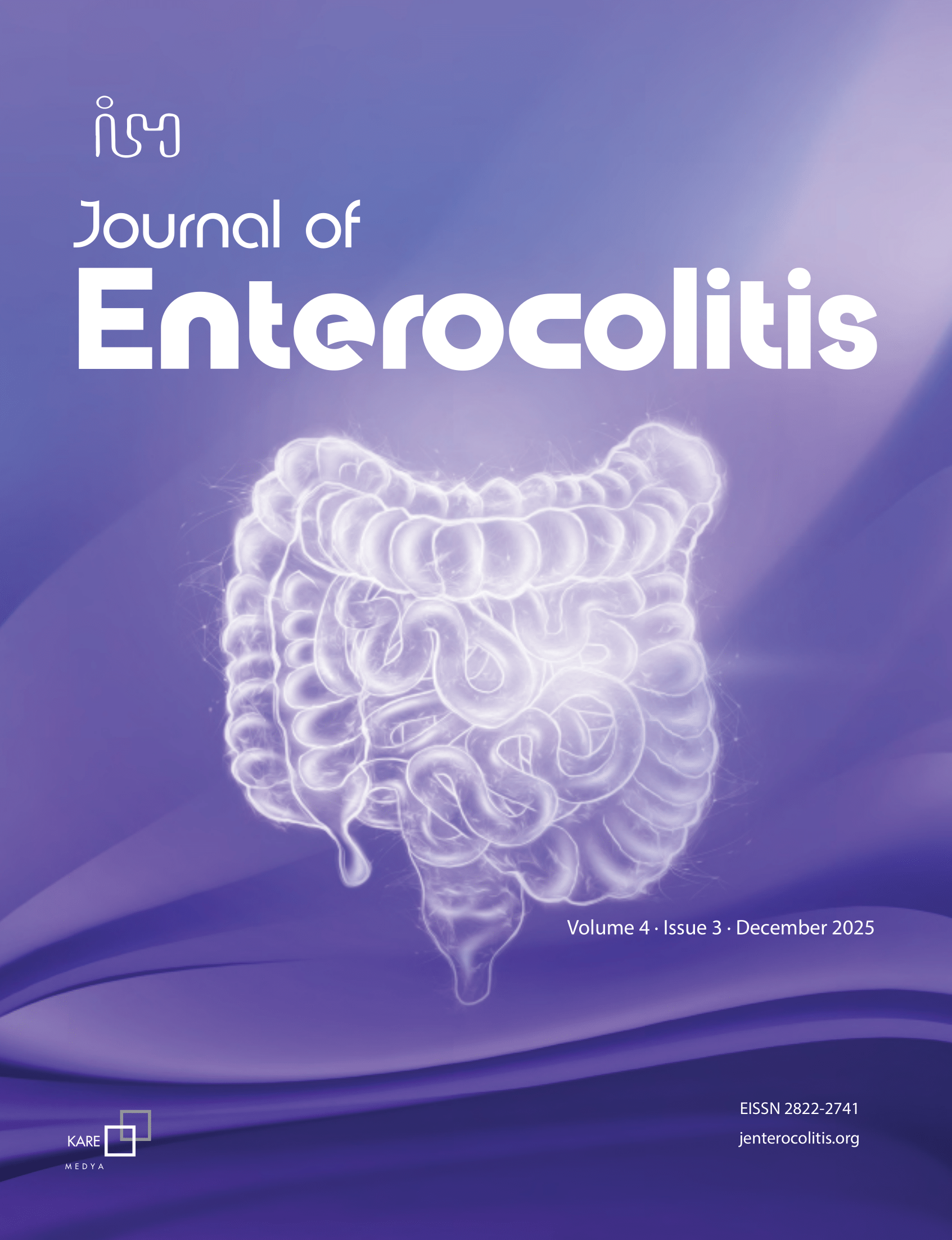
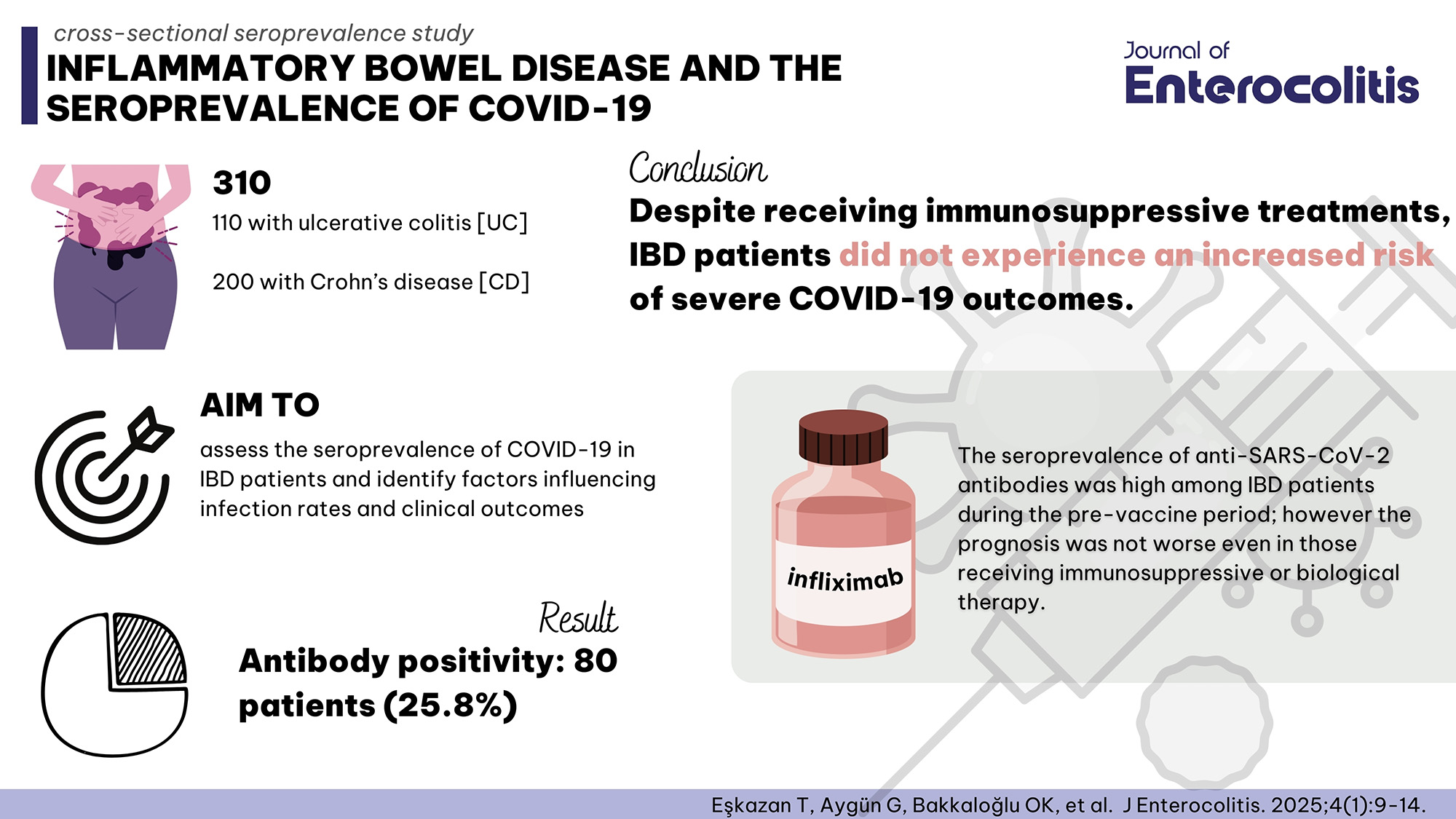
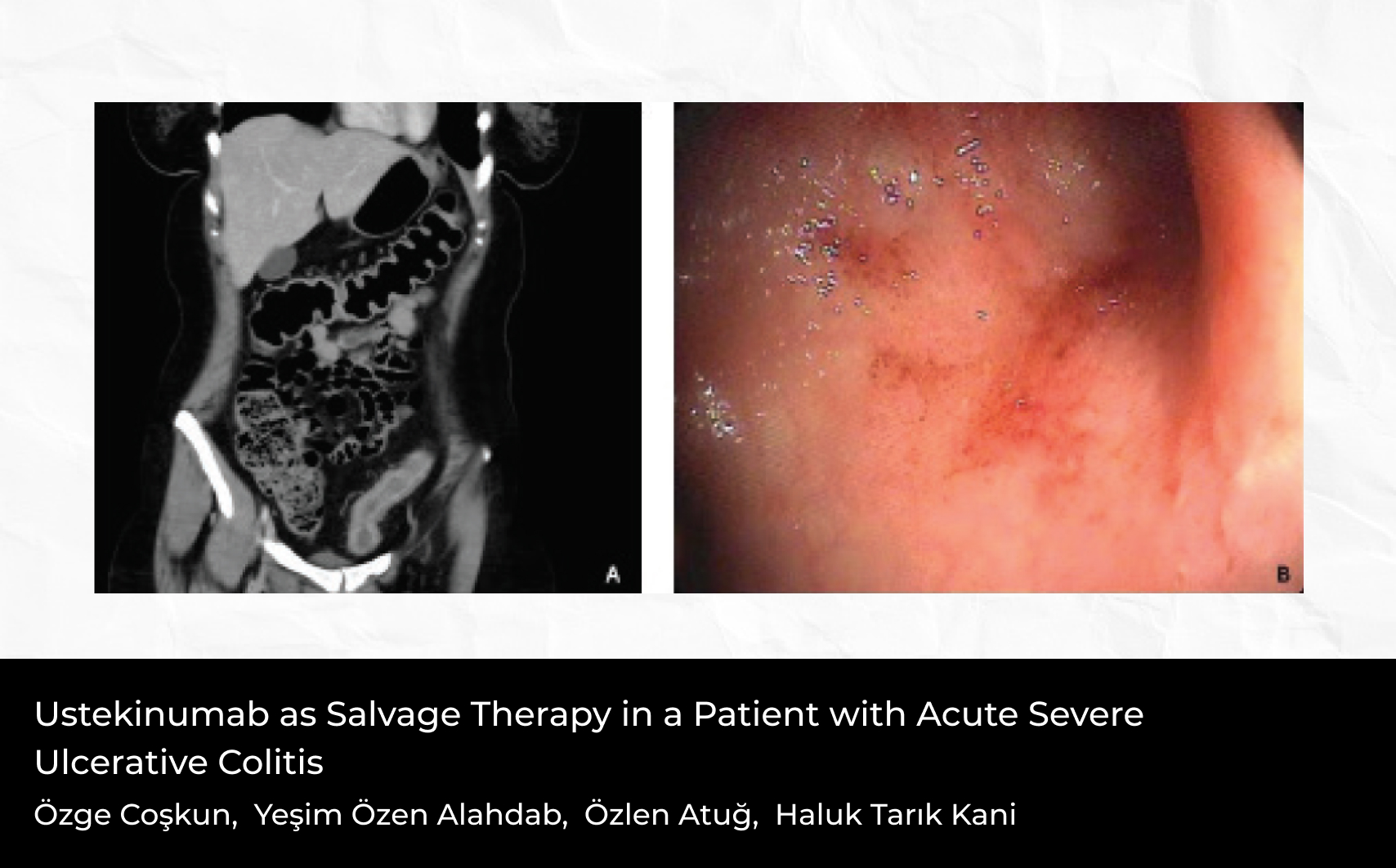
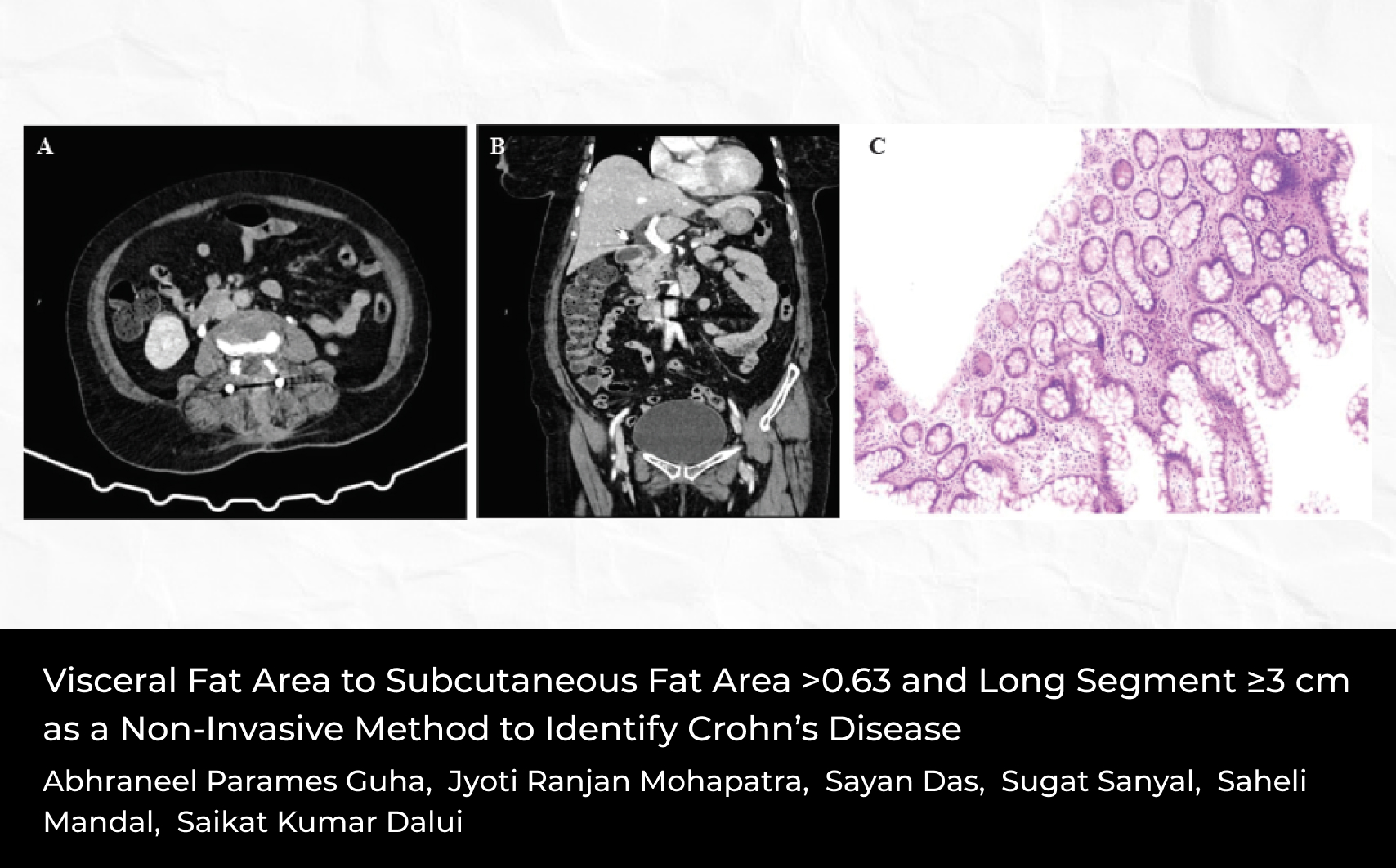
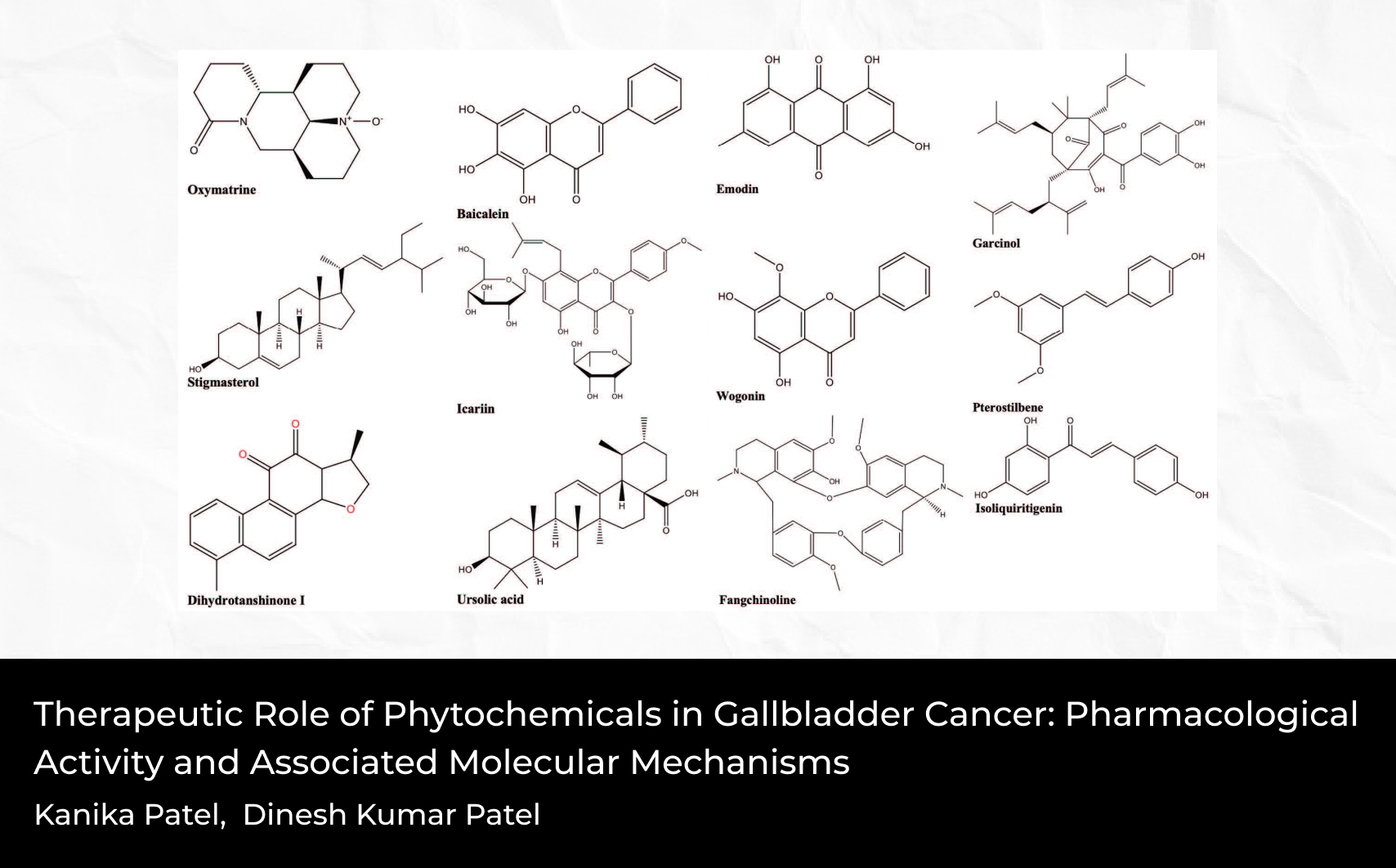
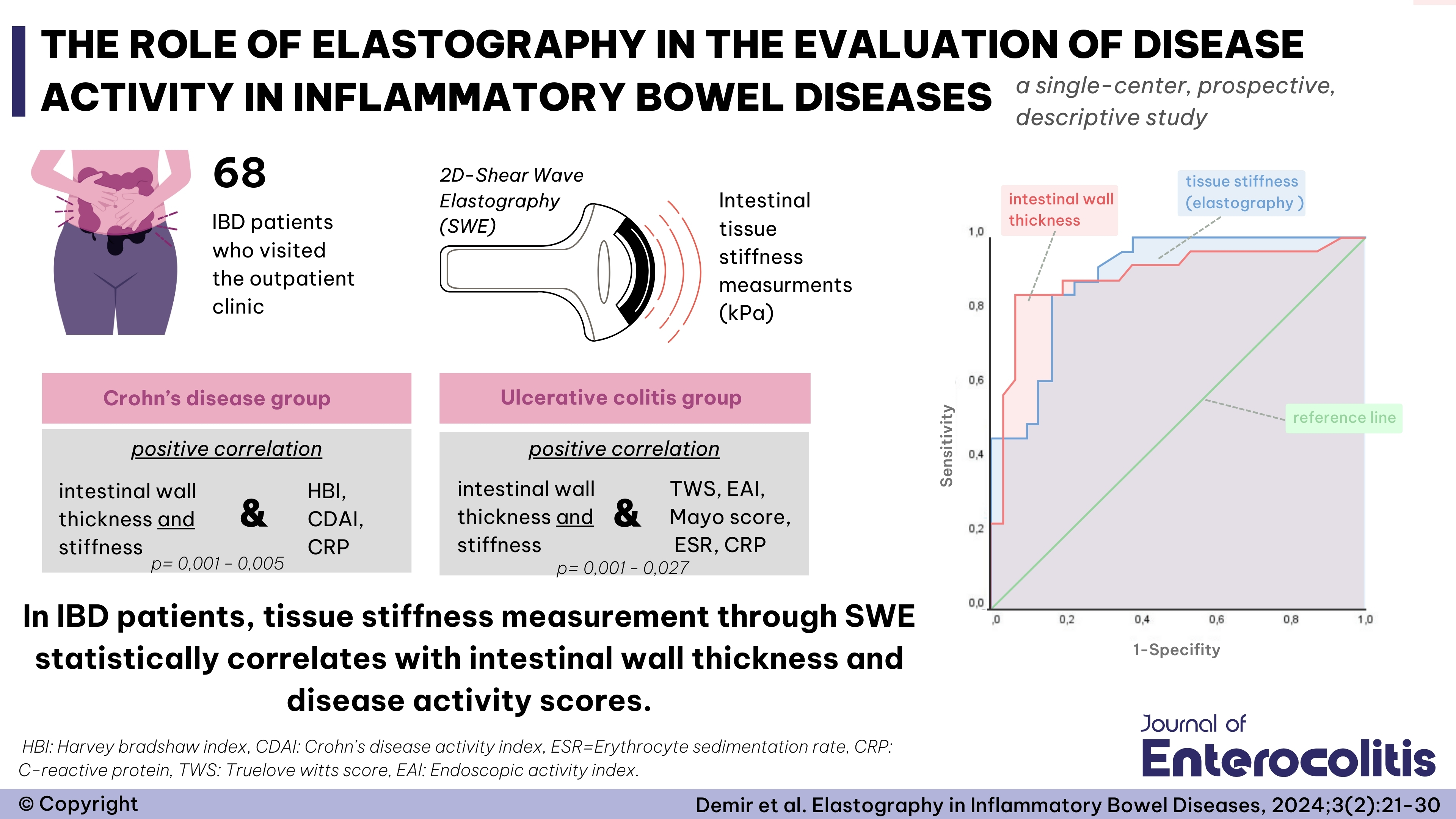
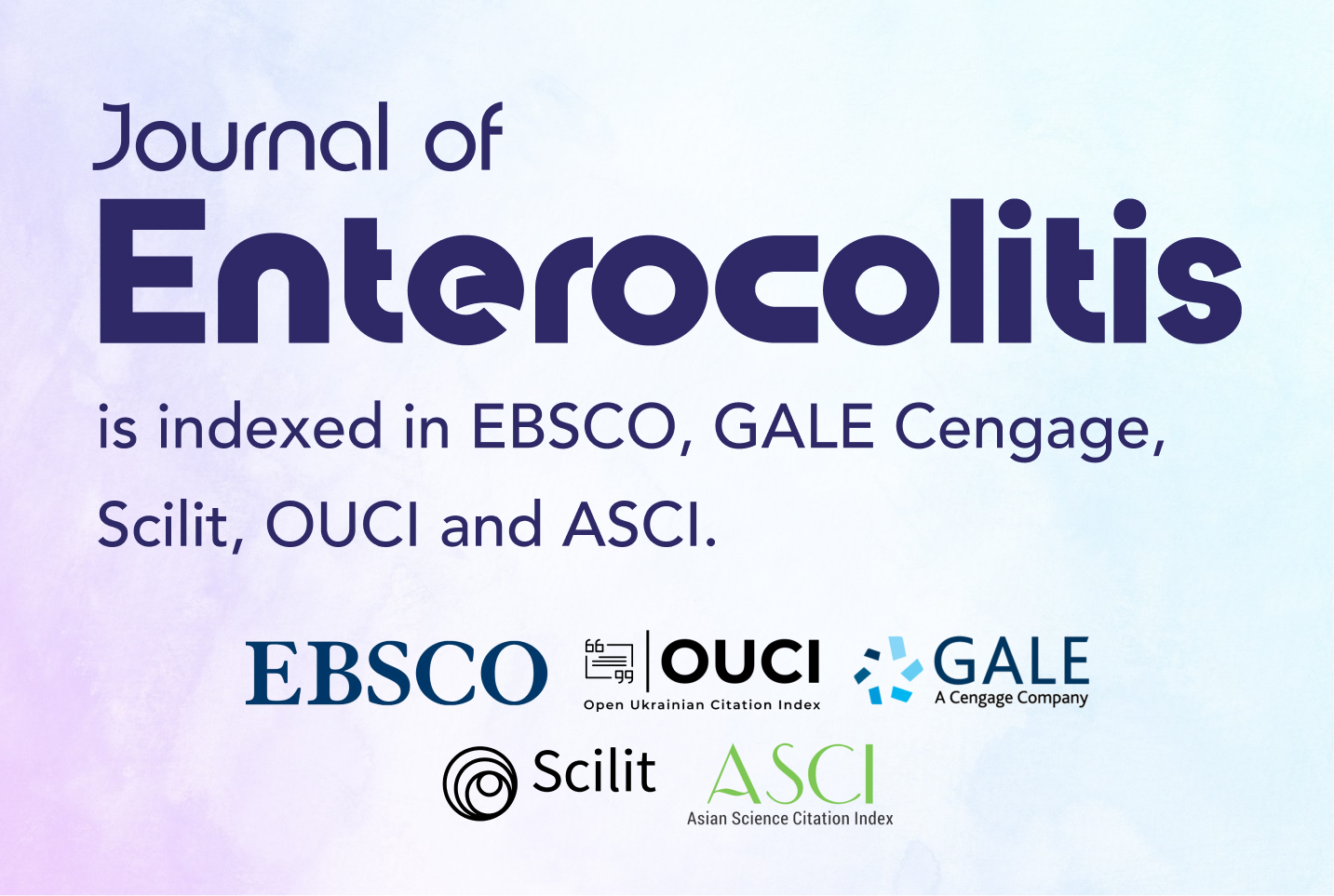
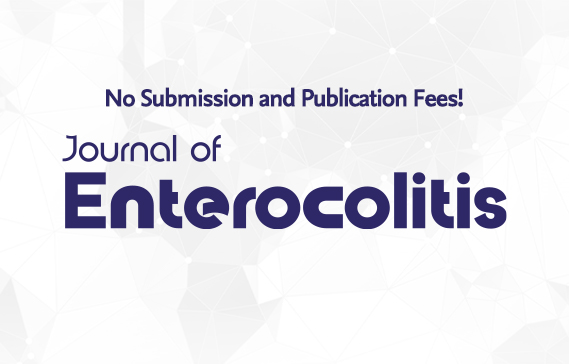
 Tuğçe Eşkazan1
Tuğçe Eşkazan1 






